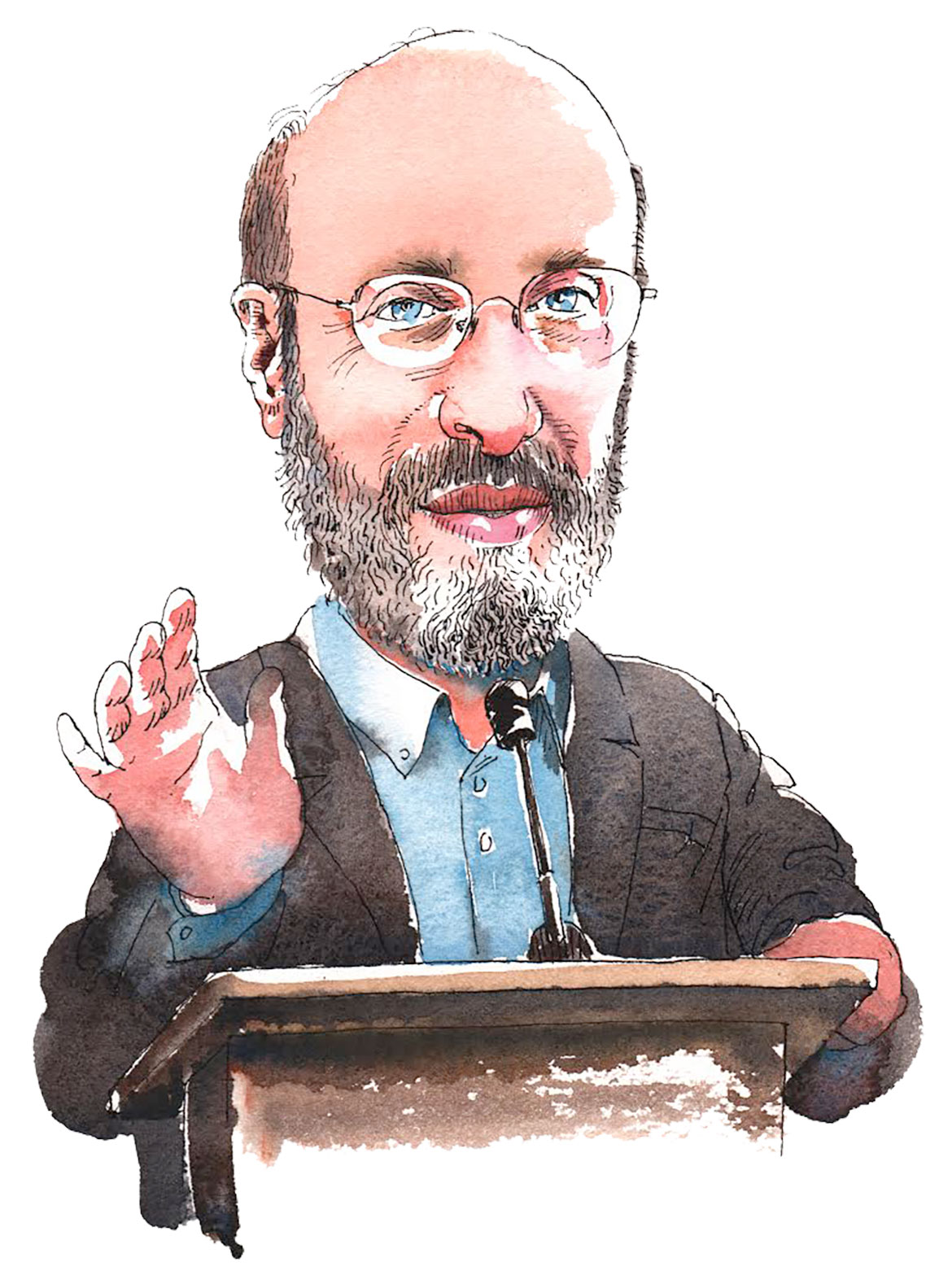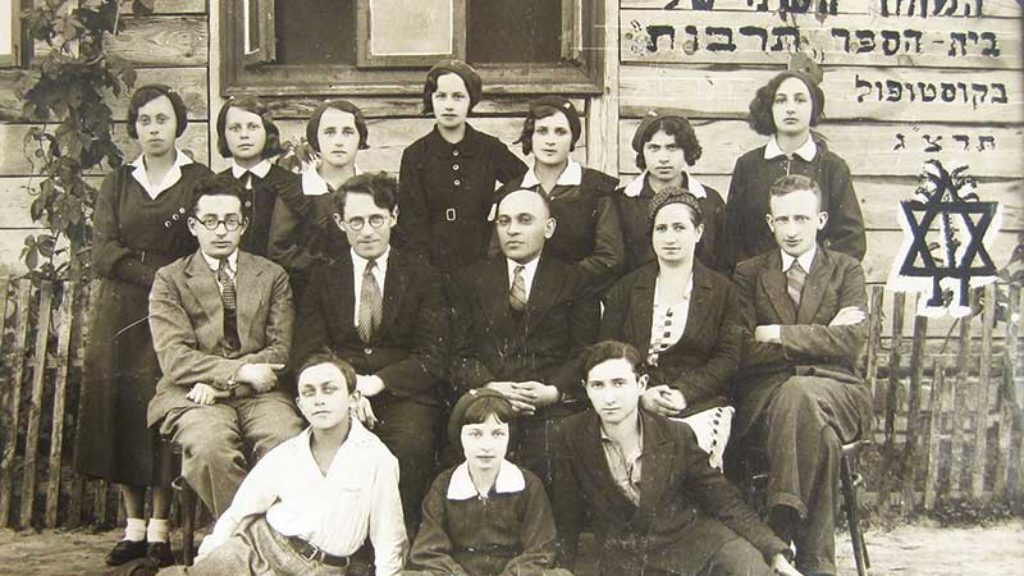“The Cruiser” and the Jews

Unlike Stuart Schoffman, I never made the leap to Jerusalem, though I do bounce over there whenever I can and have had the pleasure, on occasion, of joining him for a leisurely Friday morning breakfast on Emek Refaim. But even when I’m not in Israel, which is 98 percent of the time, I can’t take my eyes or ears off the place. Now that Israeli TV stations, newspapers, and nonprofits are putting out weekly or daily podcasts, I’m virtually in the Jewish state half the time that I’m in my car. But no amount of listening can take the place of books.
I own a lot more books about Israel than I have read—and I can’t help it. It’s not that I buy so many of them; most of them are mine for the asking or arrive uninvited. I accumulate them in good faith, in the expectation that I’ll get around to each of them sooner or later. But the uninterrupted flood of new books that just can’t be ignored postpones the ultimate moment indefinitely for too many of them.
I also own a lot of books on the history of Zionism and Israel that I have read but haven’t opened in a long time and quite possibly will never look at again. But there are a few that I never stop consulting. Of these one of my favorites is a book published 32 years ago by an admitted nonexpert on the subject, a non-Jew who first immersed himself in it when he was in his sixties, the famous Irish statesman and public intellectual Conor Cruise O’Brien. O’Brien himself didn’t consider The Siege: The Saga of Israel and Zionism to be anything more than a bit of haute vulgarization, but it is much more than that. It is one of those uncommon works of political history in which a man who knows how the world works tells a great story with dazzling literary skill.
Known to his friends as “The Cruiser,” O’Brien (1917–2008) had a colorful, varied career that defies quick summary; it included a highly controversial stint as a UN special representative in the Congo in 1961 and service as pro-chancellor of the University of Dublin. A prolific author, with important books on subjects ranging from Irish politics to Thomas Jefferson, he was a latecomer to what he called “perhaps the greatest story of modern times.” His own special interest in Jewish history is something that he traces, in part, to his experience as an Irish representative at the United Nations (awkwardly seated, sometimes, between Iraq and Israel). He also says a few things about the somewhat similar history of the Irish and the Jews as underdogs but makes no claim to any special ability to get to the heart of the Jewish experience. The Siege, he writes, “is not about the inwardness; it is about the outwardness. In the foreground always is the play of forces around the Jews, around the Zionists, and then around the Israelis.”
One of the things I admire most in O’Brien’s narrative is the pithy way in which he summarizes the array of those forces at certain key moments. In his account of the beginnings of the British Mandate in Palestine, for instance, he describes how in the early 1920s the high commissioner, Herbert Samuel, strove to reconcile the Arabs to Britain’s pro-Zionist policy by introducing representative institutions that would give them some say in the governance of the country. Opposed to any such move because it could provide the Arabs with, as O’Brien puts it, the means to bring about the euthanasia of the Jewish national home, the Zionists nevertheless felt compelled to take the calculated risk of supporting it. The Arab leaders, on the other hand, totally refused to consider any such proposals unless the British expressly repudiated the Balfour Declaration. They thus handed Herbert Samuel a “humiliating setback,” writes O’Brien, quoting the words of Christopher Sykes, the son of Mark Sykes (of Sykes-Picot fame), in his very interesting Crossroads to Israel(1965). O’Brien follows up on Sykes’s comment with this observation:
As it was, Samuel’s setback had a notably sedative effect on Palestine. The Arabs loudly hailed it as a great victory for their cause, while the Jews quietly appreciated their deliverance, at the hands of their deluded enemies, from their dangerous friend.
That sedative had worn off, of course, by the mid-1930s, and the Arab rebellion that began in 1936 led to the Peel Commission’s partition proposal in July of 1937, which the Arabs violently rejected. By the end of the year, Prime Minister Neville Chamberlain had decided not to try to implement partition but did not make that public immediately, lest it appear that the British had surrendered to force. O’Brien’s description of the ensuing situation is unforgettable:
So for nearly a year thereafter, the Arabs fought on, in order to kill a policy that was already dead, and the British fought them down, so as to be able to replace the dead policy, in a dignified way, with one they hoped would please those who were still trying to kill the dead one.
Returning today to The Siege, not to relocate a pithy quotation but to refresh my memory of the book as a whole, I’m struck by something I don’t think that I fully realized before: O’Brien gave very short shrift to Israel’s wars. Of the book’s approximately 700 pages, he devoted only 25 to the War of Independence, 5 to the Sinai campaign, 1 to the Six-Day War (!), 8 to the Yom Kippur War, and 24 to the 1982 Lebanon War (no doubt because it was the last major conflict to take place prior to the publication of The Siege). His quick summaries of these wars were not at all celebratory; ardent supporter of Israel that he clearly was, he didn’t gloat about the country’s quickly developed military prowess. He dwelt much more on its leaders’ verbal skills.
O’Brien had only just become a delegate to the UN General Assembly, at the beginning of November 1956, when he heard Israel’s representative Abba Eban deliver a famous speech in defense of Israel’s involvement in the fighting that had just taken place in Sinai. Eban, he writes, “was at that time portly in appearance, and rather plummy in public discourse; he looked like Beach the Butler and sounded like an archbishop.” O’Brien thought at the time that “the speech was histrionics,” but he ultimately concluded that “it was not empty histrionics; it was histrionics with a political purpose, of vital importance to Israel. Abba Eban was using the stage and pulpit of the United Nations to maximum effect to dramatize the siege of Israel before the American public.”
With all his respect for the people who led it, O’Brien didn’t think that Israel always played its hand wisely. “After the Six Day War,” he wrote, “Hubris and Euphoria shook off the dust of the Arab cities and took up residence, in a quieter and more insidious style, in Jerusalem.” In his opinion, “the Yom Kippur War,” for instance, “could have been avoided if the Government of Golda Meir, under the ascendancy of Moshe Dayan, had not acted on the assumption that Israel needed no foreign policy, only a defense policy.” But if he identified past conflagrations that could have been avoided, he didn’t claim in 1986 that a path to peace lay within reach.
The siege will continue, O’Brien wrote in his epilogue, “in some form, into an indefinite future.” Even though “Israel could find itself at peace, in one way or another, with all its neighbors,” it was clear that “the problem of the West Bank, and of Israel’s incapacity to get out of it, will still remain.” This is something that O’Brien does not attribute to Israeli short-sightedness.
The reasons for Israel’s incapacity to abandon all the territory acquired in the 1967 war are bound up with the two great raisons d’être of Zionism: the Jewish State and the Return.
“Secure boundaries,” O’Brien acknowledged, “are a basic requirement of the Jewish State,” and Israel wouldn’t have them any more if it returned to the 1967 lines. And “to expect the Jews, having thus once again come into possession of Jerusalem, to hand over the Old City, with the Wall of the Temple, to an Arab power, or to an international authority, is to expect what cannot be.”
The best that one could hope for, O’Brien concluded, was “quieter talks about how to make the sharing of the territory somewhat less uncomfortable and less dangerous for Israelis and Palestinians alike.” While he wrote this in 1986, the year before the outbreak of the First Intifada, it sounds pretty much the same as what a lot of sensible people are saying today. But if rereading Conor Cruise O’Brien’s 32-year-old The Siege doesn’t offer any new clues as to how Israel can make its way out of the predicament in which it found itself when he wrote and it is still mired, doing so can nonetheless teach readers a great deal about how it got into the predicament in the first place.
Comments
You must log in to comment Log In
Suggested Reading
Jewish Acculturation in America: A Symposium
Five leading Jewish thinkers discuss the continuing impact of the American melting pot.

Zionisms, Old and New
Arthur Hertzberg's classic anthology The Zionist Idea has received a 21st century makeover. But is the new version really an improvement over the old one? And what does Yossi Klein Halevi have to say in 2018 that hasn't been said before?

Adventure Story
The story of Hebrew is a great story because there is nothing inevitable about it. Whether it was the period of the Bible or the Mishnah or Maimonides, there was always a danger, often the likelihood, that Hebrew would be lost in the break-up of great communities and subsequent migrations.
Promised Land or Homeland?
The university presses of Cambridge and Oxford have released two new works of Jewish political theory that blend theoretical defenses of Zionism with robust critique of what Chaim Gans calls the “Zionist mainstream.”
robert willer
The real reason why peace has been and remains impossible is that following the Mufti's programme since 1920 the local Arab goal (PA and Fatah) is solely the elimination of Israel. There was not even a professed desire for a Palestinian state prior to 1967. After 1967, the Mufti's cousin, Arafat presided over a fake policy of seeking statehood but as many private Palestinian statements attest, that state was to be a platform from which the elimination of Israel and Jews could be carried out. This is the programme today of Abbas; Hamas, Islamic Jihad and hizbollah and Iran do not play with the idea of a tiny state next to Israel. "From the river to the sea" means what it says. Europeans do not understand this; US Jews do not either.
Rick Richman
Thank you for this. Written in 1986 by an Irish diplomat, historian, and public intellectual, “The Siege” is still one of the finest books ever written about Israel, a masterpiece of meticulous research and beautiful writing. The last sentence noted a momentary abatement in violence but that “What is not in sight is an end to the siege.” A third of a century later, the siege continues, and the book is still relevant and revelatory.